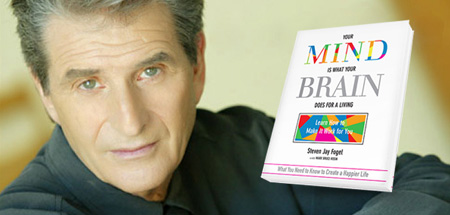Rhesus Monkeys and Good Parenting
An excerpt from my recent book, Your Mind Is What Your Brain Does for a Living, now available at Amazon:
Let’s look at an example of how a parent can repair a rupture in his or her child’s attachment. When I was five years old, my father walked into the living room, found me drawing in his high school yearbook, and yelled at me. I became frightened and upset. My father grabbed his yearbook and left me in the living room, crying. I loved my father very much, and I believed he was punishing me with rejection for drawing in the book. In order to repair the rupture, my father could have calmed himself down, come back a few minutes later, and hugged and comforted me. He could have told me he loved me and he hadn’t meant to get so angry at me. He could have said I was a good kid and that I was doing what good kids do, drawing and entertaining myself. He could have told me he realized that I didn’t know I shouldn’t draw in his special yearbook.
The problem is that it never occurred to my father to notice my distress and explain the situation to me; he probably handled it in the same way his father had treated him. Like many parents, my father didn’t know how to heal the ruptured attachment and how important it is for parents to do so, and so he didn’t do it. This event, in which the ruptured attachment wasn’t resolved, occurred three years before the playground incident I described and was one of the reasons that, much as I needed comforting then, I was afraid to go to my father and mother after I’d fallen and had the wind knocked out of me.
Starting in the 1950s, psychologist Harry Harlow performed experiments with rhesus monkeys in order to study attachment between mother and baby during infancy. He removed the monkeys from their mothers shortly after birth and gave them surrogate mothers that provided them with milk. Some “mothers” were made of wire mesh and others were covered with foam and soft cloth. Both types of surrogate mothers had electric lights inside them that made them warm.
The monkeys that had wire surrogate mothers soon exhibited behavior, such as rocking, that showed they were distressed, and they also exhibited antisocial behavior. The monkeys that had cloth-and-foam-covered mothers didn’t exhibit distress or any antisocial behavior. Harlow’s experiment showed that food and warmth alone aren’t sufficient for baby monkeys to become emotionally healthy; affection and closeness (simulated in the experiment by the foam and softer covering, as well as the warmth of the electric light) are also necessary.
Because of the rhesus monkeys’ similarity to human beings, Harlow applied these findings to human babies, concluding that they, too, need their caregiver’s love, affection, and acceptance in addition to food, warmth, and safety. His findings contributed a great deal to our understanding of the bond between mother and child and the psychological and physical effects, which can continue into adulthood, that result from a caregiver’s insufficiently meeting a baby’s needs.
I think of parents who, because of their own biology or DNA or childhood environment or unresolved traumas—or a combination of these factors—aren’t capable of repairing ruptures with their children at least 50 percent of the time, as “wire monkey parents.” If one or both of your parents was a wire monkey parent, you’re going to have had more unrepaired ruptures in your childhood, and your responses to these unrepaired ruptures will have had a major impact on your programming.
- 15 May, 2014
- Posted by Steve Fogel
- 0 Comments



COMMENTS